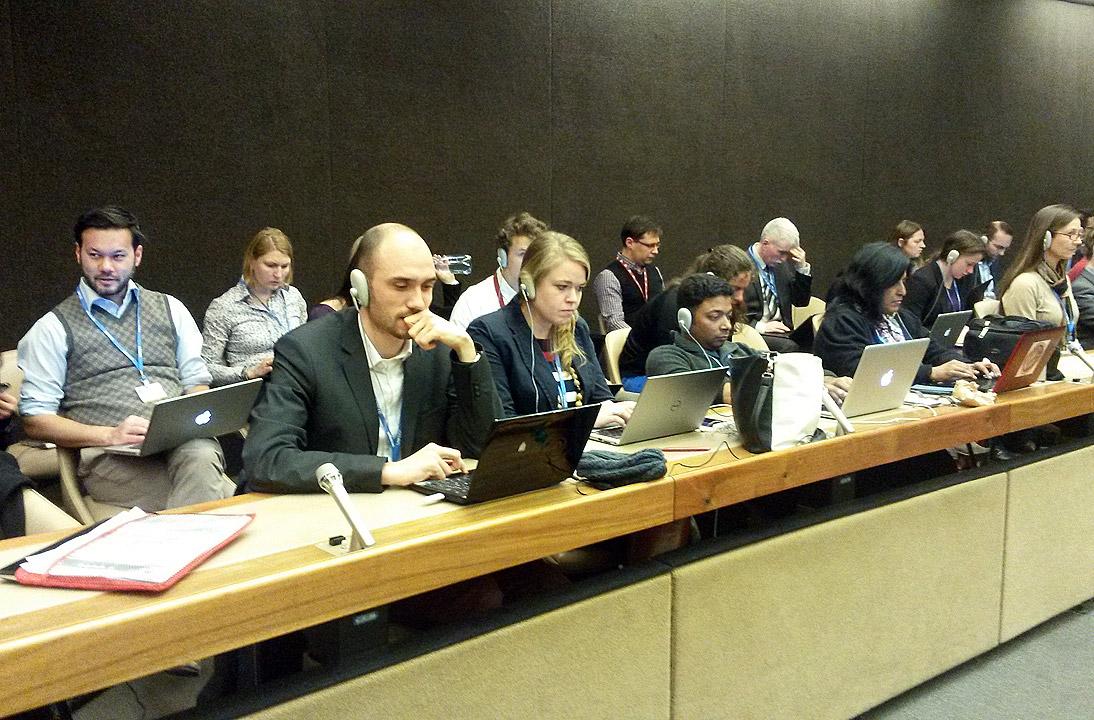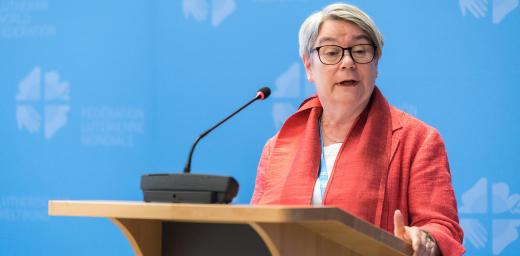United Nations Framework Convention on Climate Change Visits Geneva

Photo: Martin Kopp
Marta Erling Spangler
The “spirit of Geneva” was strong, according to the representative from Venezuela, as she made her closing comments to the parties and observers gathered at the Palais des Nations at the end of the 8-13 February ADP session. (ADP is climate negotiator jargon for: Ad Hoc Working Group on the Durban Platform for Enhanced Action, a long title for a group that is tasked to draft a negotiation text for the UNFCCC, the United Nations Framework Convention on Climate Change.)
The representatives at this week-long meeting slaved over a draft that grew longer as the days passed. Each country proposed additions to the text, suggestions on its structure and changes to existing language. Deliberations proceeded steadily enough so that some smaller country delegations petitioned that the meetings be slowed down, to accommodate their limited staff.
The ADP sessions are mostly technical, but these sessions in particular reveal the powerful role that language plays in negotiating. Each paragraph now has a multitude of options proposed by countries that have a vested interest in seeing certain issues highlighted, be it financing, the reduction of greenhouse gas emission, or even who might be required to comply. Simple word changes can mean a difference of billions of dollars. For example, without language about the “additionality” of funding, some countries fear that financial support might be transferred from existing development projects in health, education, or the social sector to the green climate fund. Obviously this is not an ideal scenario for those receiving funds, and for those concerned with issues of justice around climate change.
This week provided a unique opportunity for Geneva to host these discussions and influence this process. And it would seem from the comments of the representatives present that Geneva provided a very constructive atmosphere for them to work. Now, however, comes the much more difficult part of the process. The production of the draft has been party-driven, as the co-chairs invited the countries to propose additions to the text. The next step will be one of “streamlining” or, in other words, making the draft more manageable in length and scope so that countries can come to a collective agreement.
Unfortunately for all of us who live on this planet, there is no objective editor to guide these negotiations, provide the perfect text, and ensure that all countries commit accordingly. The agreement parties reached in Lima, Peru, last December only commits to 3.6 degrees Celsius warming. This trajectory isn’t nearly enough to prevent the adverse effects of climate change, which many are already experiencing. Rising sea levels, raging forest fires, prolonged droughts, massive flooding, and extreme storms have all been linked to climate change and already are threatening the livelihoods of people around the world.
Now is the time for people of faith to make the case at a national level. Now is the time to call for policies that ambitiously tackle climate change and reduce our greenhouse gas emissions; prioritize sustainable transportation, food production, and energy consumption; and address the needs of the most vulnerable to adapt to changing climates in a way that promotes an abundant future for all.
Ms Marta Erling Spangler is Junior Advocacy Officer in the LWF Office for International Affairs and Human Rights and a regular contributor to this blog.





